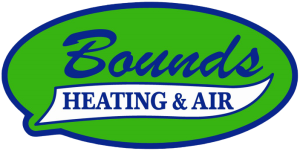5 Smart Ways to Shrink Your Energy Bills This
Here are five ways to start shrinking your heating and cooling-related energy costs today.
1. Hang Up Energy-Efficient Window Coverings
If some rooms in your home are always much colder or hotter than others, invest in some window treatments that can help even out the temperature, like cellular shades, Roman shades, or thermal curtains. These window treatments act like a layer of insulation that blocks out heat during summer (when you don’t want it) and keeps heat in during winter (when you do want it).
2. Seal Gaps Around Your Doors and Windows
Have you ever wondered why certain rooms or particular places in rooms are so much warmer or cooler than others? The most likely reason is heat loss and gain through air leaks around doors, windows, or both. Take some time this year to weatherseal your windows and exterior doors to lower your energy bills (and help keep the roaches out)!
Pro Tip: If you’re having trouble determining where air leaks are occurring throughout your home, conduct a home energy audit. During a home energy audit, a professional auditor will look at your energy bills, inspect your home’s walls, windows, doors, and insulation, and analyze the main sources of energy loss to help you come up with the best energy-saving solutions to lower your bills.
3. Skip the Heat Settings On Your Clothes Washer and Dishwasher
The last thing we need in our corner of the U.S. is more humidity. Humid air is not only uncomfortable, but it takes longer for your AC to cool. Cut your energy costs year round by washing your laundry in cold water and switching your dishwasher to the no-heat dry cycle. This will reduce the humidity these appliances release into your indoor air.
4. Install a Smart Thermostat
A programmable thermostat allows you to “set it and forget it”–but what if you aren’t sure how best to program the thermostat for the biggest energy savings? That’s where smart thermostats like the Nest come in, with settings and apps that teach you how to program your thermostat to get maximum energy savings. If that sounds too complicated, the Nest can actually program itself after about one week of learning your household routine.
5. Get Your HVAC System Maintained Annually
Without routine maintenance, your heating and cooling system will suffer more and more from problems like dust buildup, loosening parts, and lack of lubrication. This wear and tear takes a toll on the system’s performance, increasing its energy consumption–as well as the chance of it breaking down during periods of heavy use. Repair costs and high energy bills are problems that can cost much more in the long run than routine maintenance appointments.
At Bounds Heating & Air, we provide a wide range of residential HVAC services throughout Gainesville and beyond. Whether it’s preventative maintenance, a repair, or a home energy audit, contact us today online or by phone: (352) 472-2761.


